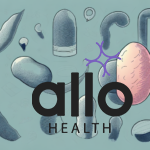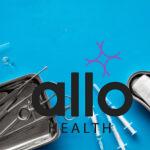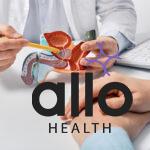Penis Enlargement Foods: Real Or Fake?

Allo Health is dedicated to personalized well-being, offering support and trusted information tailored to individual health goals. The platform emphasizes human-generated content, led by a distinguished medical team of experts, including physicians and sexual health specialists. Their commitment to credibility involves rigorous fact-checking, authoritative research, and continuous updates to ensure accurate, up-to-date information. Allo Health's unique approach goes beyond conventional platforms, providing expert-led insights and a continuous commitment to excellence, with user feedback playing a crucial role in shaping the platform's authoritative voice.

Dr. Warisha holds an MBBS degree from GMERS Medical College, Ahmedabad. She has an in depth experience on sexual and reproductive health and rights.
Why This Was Upated?
Our experts continually monitor the health and wellness space, and we update our articles when new information became available.
Updated on 19 August, 2023
- Article was updated as part of our commitment to diversity, equity, and inclusion.

"The following blog article discusses food and diet-related information for general educational purposes. However, it is important to note that the information provided is not intended as personalized dietary advice and should not be considered a substitute for professional guidance from a registered dietitian or qualified healthcare professional. Before making any significant changes to your diet or nutrition plan, it is recommended to consult with a registered dietitian or healthcare professional.
Book consultation
Dietary changes can have a significant impact on your overall health and well-being. It is important to approach any changes to your diet in a balanced and sustainable manner, ensuring that you meet your nutritional needs and avoid any potential nutrient deficiencies. Rapid or extreme changes in dietary patterns can be detrimental to your health and may require professional guidance.
It is crucial to note that any specific dietary recommendations or guidelines mentioned in this article may not be appropriate for individuals with specific medical conditions, allergies, or intolerances. A registered dietitian or healthcare professional can provide individualized advice, including modifications or alternative food choices to accommodate your unique circumstances.
The information provided in this article may not encompass all possible dietary considerations or account for the latest research and nutritional guidelines."
Do you find yourself self-conscious about the size of your penis? You’re not alone. Penis size can greatly affect a man’s confidence and self-esteem, and can even affect sexual performance. While there are numerous methods on the market promising to increase penis size, many of them are expensive and come with risks.
Penis Enlargement: All You Need To Know
Natural Methods
- Exercise: Some exercises, such as Kegels, may help improve blood circulation to the pelvic area and potentially lead to better erectile function.
- Weight Loss: If you’re overweight, losing excess body fat can make the penis appear larger by reducing the fat pad around the base of the penis.
- Healthy Lifestyle: Maintaining overall good health through proper diet, exercise, and stress management can positively impact sexual health.
Medical Approaches
- Penis Pumps: Vacuum erection devices (penis pumps) can temporarily increase blood flow to the penis, resulting in a temporary size increase. The effects are temporary and may not be significant.
- Penile Extenders: These devices use traction to stretch the penis tissue over time. Some limited studies suggest potential increases in length, but results vary.
- Surgery: Surgical procedures can involve ligament release (to increase visible length) or fat transfer (to increase girth). These procedures carry risks and potential complications, including scarring, infection, and unsatisfactory results.
Supplements and Creams
- Be cautious: Many supplements and creams claiming to enlarge the penis are not regulated by health authorities and lack scientific evidence. Some may even contain harmful ingredients.
Psychological Considerations
- Size Perception: It’s important to recognize that penis size doesn’t determine sexual satisfaction or prowess. Communication and emotional connection are crucial for a fulfilling sexual relationship.
- Body Dysmorphic Disorder (BDD): Some individuals may suffer from BDD, a mental health condition where they obsess over perceived flaws in their appearance. If this is the case, seeking psychological help is recommended.
Consult a Medical Professional
- Before considering any form of penis enlargement, it’s crucial to consult a qualified medical professional. They can help you understand the risks, benefits, and evidence-based options available.
There’s no universally accepted method for penis enlargement that is safe and guaranteed to provide significant results. The most effective approach to enhancing sexual satisfaction involves maintaining a healthy lifestyle, open communication with your partner, and seeking professional advice if you have concerns about your body image or sexual performance.
Can Diet Really Help With Penis Enlargement?
Diet plays a role in overall health, including sexual health, but it’s important to manage expectations when it comes to the potential impact of diet on penis enlargement. While there’s no magical food that can dramatically increase penis size, maintaining a healthy diet can indirectly support sexual function and overall well-being. Here’s how diet can contribute:
- Cardiovascular Health: A healthy cardiovascular system is essential for optimal sexual function. Foods rich in antioxidants, healthy fats, and nutrients can improve blood circulation, benefiting blood flow to the genital area. This improved blood flow can lead to better erectile function and overall sexual performance.
- Nutrient Support: Certain nutrients play a role in hormone production and sexual health. For instance:
- Zinc: Supports testosterone production, which is important for libido and sexual function. Foods like oysters, nuts, and seeds are good sources of zinc.
- Omega-3 Fatty Acids: Found in fatty fish, flaxseeds, and walnuts, these healthy fats can improve blood vessel health and blood flow.
- L-Arginine: An amino acid that helps with blood vessel dilation, found in foods like meats, dairy, and nuts.
- Overall Well-being: A balanced diet contributes to better overall health, including maintaining a healthy weight. Excess body fat can lead to a buried penis appearance due to fat accumulation around the base, so weight management is important for visual perception.
- Confidence and Body Image: Feeling good about your body and overall health can positively impact confidence and self-esteem, which can, in turn, improve sexual experiences and relationships.
- Psychological Factors: A healthy diet can contribute to better mental health. Stress, anxiety, and depression can affect sexual function negatively. By supporting good mental well-being, a healthy diet indirectly contributes to sexual health.
- Caution with Claims: Be cautious of products or diets claiming quick and significant penile enlargement through specific foods or supplements. These claims often lack scientific evidence and can be misleading.
While diet alone cannot substantially increase penis size, it does play a role in overall sexual health. A diet rich in nutrient-dense foods, antioxidants, healthy fats, and lean proteins can improve blood flow, hormone production, and overall well-being. The effects of diet are indirect and may not result in noticeable changes in penis size. If you have concerns about sexual health or body image, it’s important to consult a healthcare professional who can provide personalized advice and guidance.
Foods To Eat For Penile Growth
While there’s no specific food that can guarantee penile growth, maintaining overall health and proper blood circulation can positively impact sexual function. Eating a balanced and nutritious diet can contribute to better overall well-being, which in turn can support sexual health. Here’s a list of nutrients and foods that can be beneficial for maintaining good sexual health:
Protein
- Lean meats (chicken, turkey, lean beef)
- Fish (salmon, tuna, mackerel)
- Eggs
- Legumes (beans, lentils, chickpeas)
Omega-3 Fatty Acids
- Fatty fish (salmon, mackerel, sardines)
- Flaxseeds
- Chia seeds
- Walnuts
Fruits and Vegetables
- Berries (blueberries, strawberries, raspberries)
- Citrus fruits (oranges, grapefruits)
- Leafy greens (spinach, kale)
- Cruciferous vegetables (broccoli, cauliflower)
- Avocado
Nuts and Seeds
- Almonds
- Pistachios
- Pumpkin seeds
- Sunflower seeds
Whole Grains
- Quinoa
- Brown rice
- Oats
- Whole wheat
Healthy Fats
- Olive oil
- Coconut oil
Antioxidants
- Dark chocolate (in moderation)
- Green tea
- Berries
Zinc
- Oysters
- Beef
- Pumpkin seeds
- Chickpeas
Vitamin D
- Fatty fish (salmon, mackerel)
- Cod liver oil
- Fortified foods (such as fortified milk)
L-Arginine
- L-arginine is an amino acid that can help with blood vessel dilation and blood flow. It’s found in various protein-rich foods, such as meats, poultry, dairy, and nuts.
Penile growth is primarily determined by genetics and developmental factors. A healthy diet supports overall health and well-being, including sexual function, but it may not directly influence penile size. It’s also important to avoid relying solely on specific foods or supplements for dramatic changes in sexual function or appearance.
Maintaining a balanced diet, staying hydrated, engaging in regular physical activity, managing stress, and getting adequate sleep are essential for optimal sexual health. If you have concerns about sexual function or any aspect of your health, it’s advisable to consult a healthcare professional.
Frequently Asked Questions
(1) Are there specific foods that can directly increase penis size?
No, there are no foods that can directly increase penis size. Penis size is primarily determined by genetics and developmental factors, not by specific foods. Maintaining a healthy diet can support overall sexual health and function.
(2) Can certain foods cause penile growth?
No foods have been scientifically proven to cause penile growth. Some foods that support cardiovascular health, like fruits, vegetables, and whole grains, can improve blood flow to the genital area, which may enhance sexual function.
(3) Do supplements claiming penile growth work?
Most supplements claiming to increase penis size lack scientific evidence and regulation. Be cautious, as some may even contain harmful ingredients. Consult a healthcare professional before trying any supplements.
(4) Can protein-rich foods contribute to penile growth?
Protein is essential for overall health, including sexual health. Protein-rich foods like lean meats, fish, and legumes provide nutrients that support tissue repair and blood circulation, which can indirectly benefit sexual function.
(5) Do omega-3 fatty acids help with penile growth?
Omega-3 fatty acids support cardiovascular health and blood flow. Fatty fish, flaxseeds, and walnuts are sources of omega-3s that may indirectly contribute to better sexual function.
(6) Can zinc-rich foods increase penis size?
Zinc is important for hormone production and sexual health. While zinc-rich foods like oysters and nuts can support overall health, there’s no direct evidence linking them to penile growth.
(7) Is there a link between vitamin D and penile growth?
Vitamin D is crucial for overall health, including bone health and hormone regulation. While it’s beneficial, there’s no direct evidence to suggest vitamin D directly influences penile size.
(8) Do antioxidants impact penile growth?
Antioxidants protect cells from damage and support overall health. While they’re beneficial, there’s no direct evidence linking antioxidants to penile growth.
(9) Can L-Arginine foods enhance penis size?
L-Arginine is an amino acid that aids blood vessel dilation. Foods like meats, dairy, and nuts containing L-Arginine can improve blood flow, potentially benefiting sexual function.
(10) Are there quick fixes for penile growth through foods?
No, there are no quick fixes for penile growth through foods. Be wary of claims promising rapid results. Focus on a balanced diet, exercise, and overall health for the best outcomes. Always consult a healthcare professional for personalized advice.





































